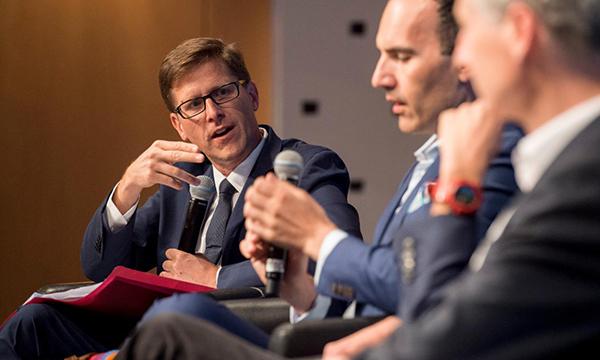
Automation is not the answer to safer roads
Road casualties will not be eliminated just by introducing automation, according to an International Transport Forum report.
Talking about the reality of a driverless car or chauffeur service available at people’s fingertips, perhaps, may have been crazy over a decade or two ago, but it isn’t so now. From private cars to trucks and other emerging mobility and transport solutions, automation on vehicles have been growing steadily—in both technological advancement and public accessibility.
Experts at a panel discussion on automation and autonomous vehicles in the International Transport Forum in Leipzig, Germany in May agreed that these technological advances on transportation and mobility may spell a revolution in ways people move around the globe. In particular, the attraction of automation and autonomous vehicles lies in the compelling promise that the technology can provide safer performance, lesser fatal accidents, more efficient traffic, and the development of new markets.
Timothy Papandreou, founder of City Innovate and speaker at the ITF Masterclass discussion, noted that transportation and mobility systems in cities and local governments and countries should be looked at in a sort of layered or phased way, with automation providing the organising backbone for transportation efficiency and management.
“Do you have a transportation system that is functioning today for you or things you want in your city. Most people would say no. But the answer is how do we get there? We get there in stages,” he elaborated, noting that those stages should focus on the most basic and fundamental issues that people face when it comes to transportation or mobility, including sidewalks, bike lanes, and others. “When you have more resources and technology, do you synchronise your traffic, to make the traffic move in a way that actually makes sense. They're the fundamental building blocks of safe, efficient, and reliable transportation system.”
Papandreou noted that automation comes into play, particularly in improving the actual performance of the transportation and mobility system of a city. He cited examples of ride-hailing services like Uber which uses an app to basically aggregate users and drivers to bring people to and from places. “Automation takes it to the next level and can make that more effective and efficient because they don’t need to park, they don’t need to stop anywhere after they’re picked up because they don’t need to go out of the system. The automation helps with the network itself,” he explained.
Focus on safer systems
The panel discussion also talked about the increasing focus on people’s safety, especially with the advent of technology that is increasingly becoming a distraction for people in front of a steering wheel, and how automation and autonomous driving can help ease the fatality rate in driving.
There is a back and forth discussion on whether autonomous vehicles are really that much safer given recent news of autonomous vehicles, in particular Tesla, featuring in fatal car crashes when its autopilot feature was turned on. A report released during the International Transport Forum noted that whilst autonomous vehicles provide a safer option for drivers—in theory—the focus should still be providing safer systems for vehicles and traffic to coexist, regardless if the vehicles are manned or unmanned.
The report mentioned that whilst claims of a more than 90% reduction in road traffic deaths resulting from automation eliminating crashes linked to human error are untested, it still seems likely that the number of road casualties will decrease with automation, but not totally eliminate car crashes in the first place. The basic principle remains on the shared responsibility of safe driving and observance of a safe system for vehicles and traffic.
“The principal tenet of the safe system approach is that traffic systems should be designed in such a way that human fallibility does not result in death or serious injury,” according to the report. “Conceived to ensure safety in a world full of human error, the safe system can also delivery safety in a world of machine errors or unanticipated behaviours.”
Philippe Crist, project manager of the International Transport Forum shared that the report, titled Safer Roads with Automated Vehicles?, noted that while the report was intended for the future, a lot of the case studies are happening in the present. “It is a report for the future but we can already see evidence right now that cities are having to grapple with this [issue], putting in place the type of policies that we set out in the report.”
Some of the recommendations from the report include reinforcing the safe system approach to ensure automated vehicles are used safely; applying vision zero thinking to automated driving; avoiding safety performance being used to market competing automated vehicles; requiring reporting of safety-relevant data from automated vehicles; assessing safety impacts of systems that share driving tasks between humans and machines; developing and using a staged testing regime for automated vehicles; establishing comprehensive cybersecurity principles for automated driving; ensuring the functional isolation of safety-critical systems; and providing clear and targeted messaging of vehicle capabilities.
Genelie De Leon of Singapore Business Review attended the International Transport Forum 2018 in Leipzig, Germany. The forum ran from May 22-25, 2018.
























 Advertise
Advertise









